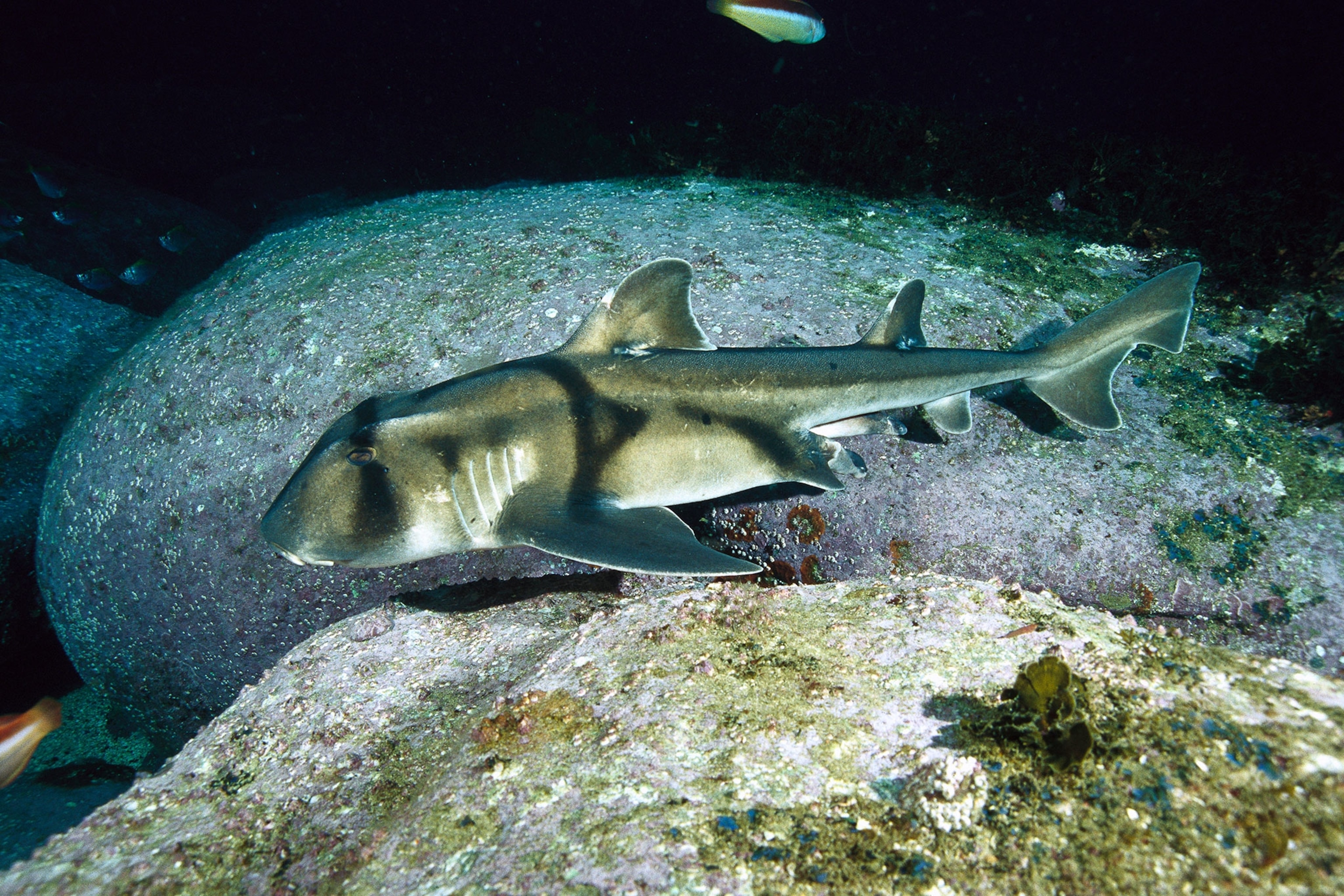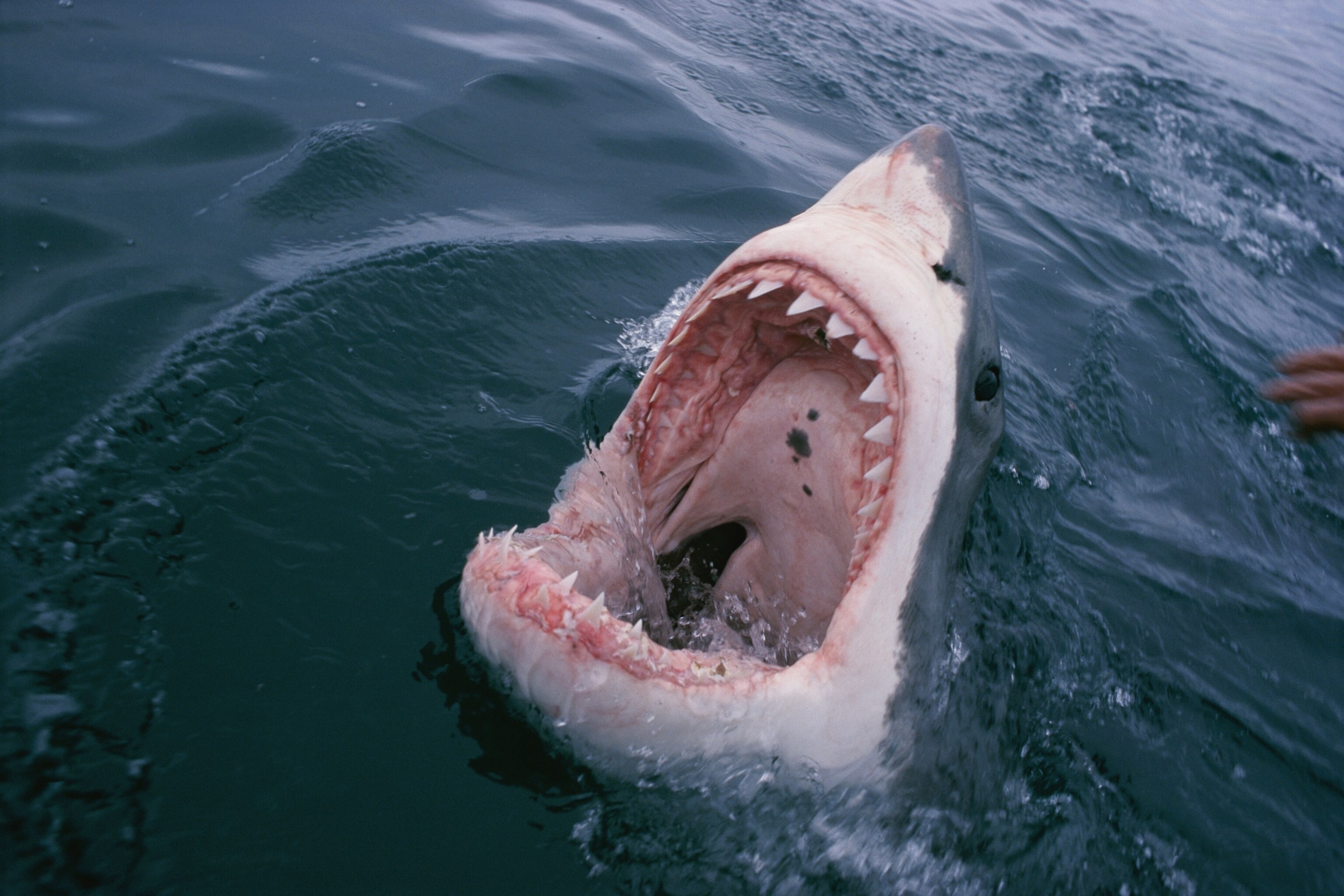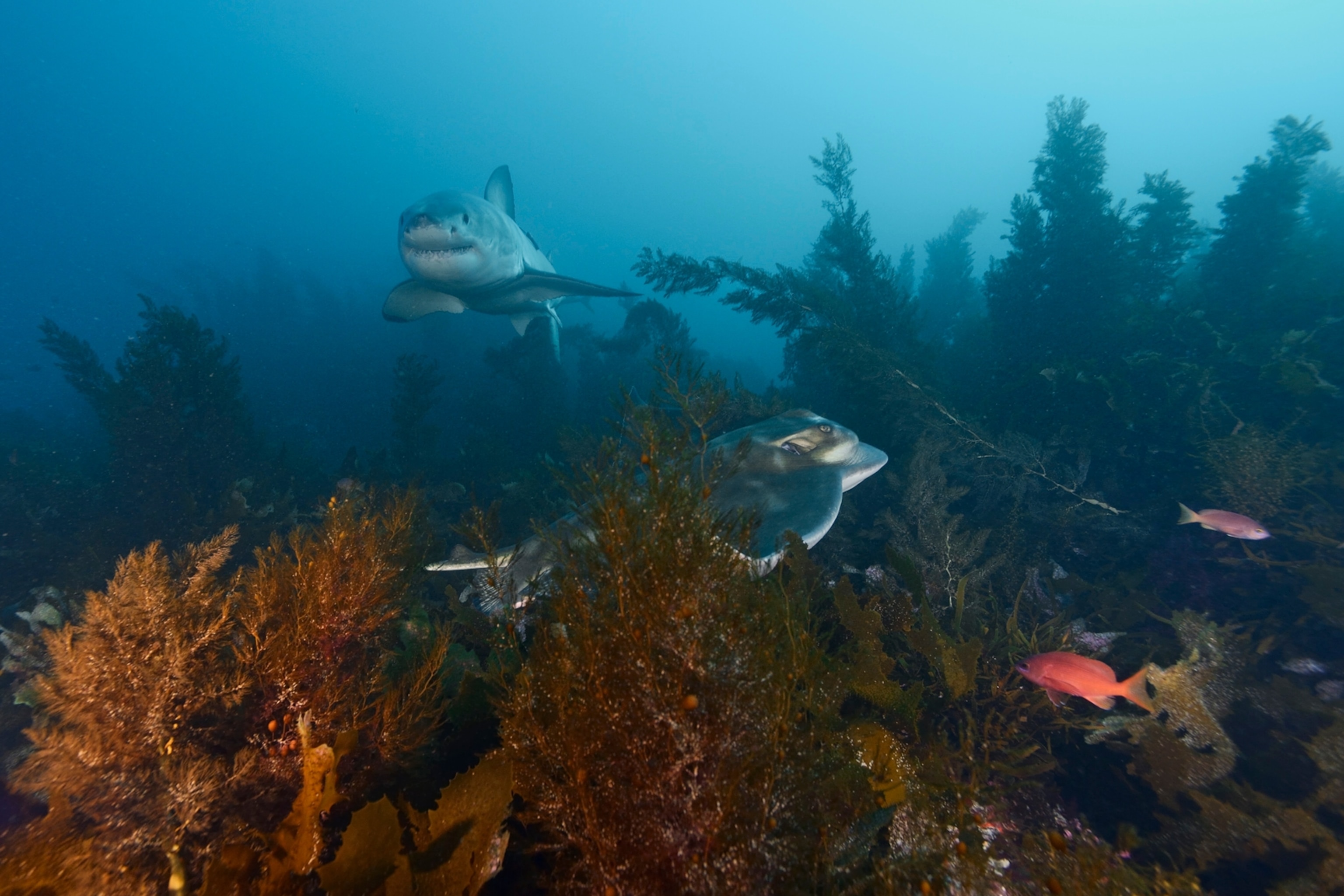
Sharks Prefer Jazz Over Classical Music, Study Finds
Given a food incentive, the young predators can develop a taste for jazzy tunes.
A new study says that sharks might be jazzier than previously thought.
Like other fish, sharks are adept at homing in on sounds. Sound waves can travel up to four times faster in water than they do in air, and fish often use them to find food, locate hiding places, and communicate with other fish.
But can sharks, which are smarter than other fish, differentiate between music and associate tunes with food? Using science, PhD student Catarina Vila-Pouca and professor Culum Brown, both at the Macquarie University Fish Lab in Marsfield, New South Wales, found that the predators can be trained to identify jazz music with a food incentive.
Their results were published in the journal Animal Cognition this week.
Play That Funky Music, Shark Boy
When dying prey wriggles in the water, it gives off a low-frequency “yummy hum” that attracts larger predators to the area. Contrary to the catchy name, the sound isn’t actually a hum—rather, it consists of rapid pulses, which sharks prefer over monotonous drones.
In the past, experts thought sharks associated the sounds of a boat engine with food. In cage-diving, sharks are frequently baited with bloody chum to get the apex predators to approach divers. Despite popular belief, sharks are not human-hunting death machines. (Related: “Why Are We Afraid of Sharks? There’s a Scientific Explanation.”)
The researchers hypothesized that sharks could learn to associate musical stimulus with a food reward and differentiate between different types of stimuli. They also wanted to see if personality traits would play a role in individual cognitive performance. Previous studies have given evidence that sharks, like humans, have specific personality traits—some are social while others appear more introverted.
For the study, the researchers played jazz music from speakers at one end of a tank and taught juvenile Port Jackson sharks to go to a feeding station for a reward. Out of the eight trained sharks, five appeared to have learned to identify the boogie beats of jazz music.
However, the researchers found that sharks can’t immediately differentiate between genres. When they played jazz and classical music out of different speakers placed at opposite ends of their tank, the sharks became confused as to which source they should go to for food.
“Right off, I would probably guess that the jazz music happened to have more of a regular beat that would be more what the sharks are used to being attracted to,” says Phillip Lobel, a Boston University biology professor and National Geographic grantee who was not involved in the study.
The sharks were later trained to distinguish between jazz and classical music and swim to opposite corners of the tank. However, their reaction to the jazzy tunes declined—some of the sharks developed a bias for swimming to the right side of the tank, which was not the side that had jazz music. (Related: “Surprise: Blue Whales Are Mostly ‘Left-Handed’”)
“The task is harder than it sounds, because the sharks had to learn that different locations were associated with a particular genre of music, which was then paired with a food reward,” Brown says in a press release. “Perhaps with more training they would have figured it out.”
Musical Intelligence
The study results could yield some insights into the learning abilities of sharks, Vila-Pouca says. Although the research only looked at Port Jackson sharks, experts say some species are more intelligent than the average fish. (Related: “Why Great White Sharks Are Still a Mystery to Us”)
“When I’m on the boat, [great white sharks will] pop their heads out of the water and look me directly in the eye,” shark expert Leonard Compagno told Smithsonian Magazine in 2008. “They feed on large-brained social animals such as seals and dolphins, and to do this you have to operate on a level higher than a simple machine mentality of an ordinary fish.”
Lobel says the study emphasizes the harmful role noise pollution plays in marine habitats. When boats go through shallow shark nurseries, he adds, noise from the engine could damage the predators physically and affect their ability to find food in the future. (Related: “What’s Killing the West Coast’s Young Great White Sharks?”)
“Think about blasting an air horn at a baby,” Lobel says. “That would probably make it deaf for the rest of its life.”
Helping to educate the public more about sharks, and their intelligence, might help to dispel rumors about them, Vila-Pouca adds, summing up her thoughts in the press release:
“Gaining a better understanding of this will help grow positive public opinion of sharks and may shift public and political will towards their conservation.”















































